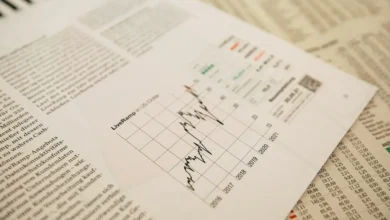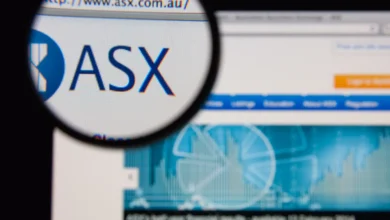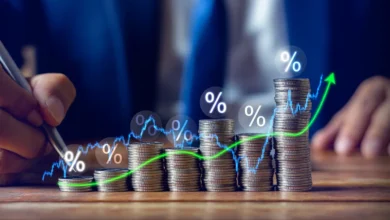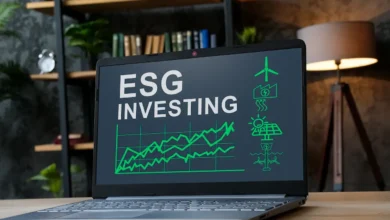The September Effect
The September Effect: What Investors Should Know
As the leaves begin to fall and summer winds down in the Northern Hemisphere, the financial markets brace for a phenomenon known as the “September Effect.” This term, which is often discussed by market analysts, refers to the tendency for stock markets to perform poorly during the months of August and September. But what is the September Effect, and how should investors prepare for it? Recently, share market specialist Remo Greco joined Lisa Leong on ABC Radio Melbourne to break down what this effect means for you and how you can navigate the turbulent financial waters of September.
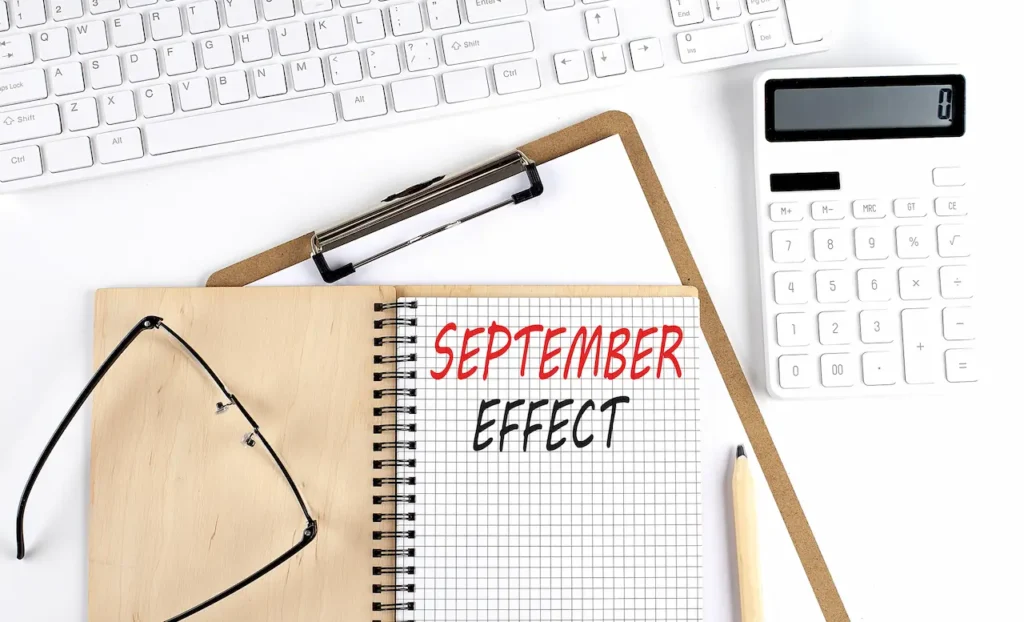
What Is the September Effect?
The September Effect is more than just a historical anomaly, it’s a trend. Over the past 50 to 60 years, markets have generally underperformed during September, and investors are left to deal with the consequences. Remo Greco explains, “We love analogues and narratives in the investment world, and the September Effect is one of those. Historically, the share markets tend to perform poorly from late August into September.”
He attributes this trend to various factors, but primarily to tax-related activities in the United States. “In the U.S., the tax year for investment funds ends in September, and fund managers often sell losing stocks to take a tax loss. This leads to increased selling pressure, driving the markets down.”
While the September Effect is widely recognized in the U.S., in Australia, a similar pattern occurs in May and June as investors clean up their portfolios before the end of the financial year.
Why Does the September Effect Happen?
So, why does this market slowdown happen almost every year? Aside from tax-related selling in the U.S., Greco points to psychological factors. “In the Northern Hemisphere, it’s the end of summer, and people come back to work after Labour Day, with bills to pay. Some of them sell stock, which adds to the market weakness,” he explains.
This year, we also have additional volatility due to an upcoming U.S. election and global economic uncertainties. “Markets have had a good run this year, and the positions need to rectify a bit,” Greco adds.
High-Flying Stocks Are Slowing Down
In addition to the September Effect, there’s been a notable shift in market dynamics. Greco observes that some of the top-performing stocks earlier this year, especially high-growth technology stocks, have started to slow down. These are often referred to as “momentum” or “Momo” stocks, and they’ve seen reduced performance in recent months.
“What we’ve seen is that Momo stocks have been weak, while defensive stocks, those that perform well in uncertain times, like Colgate Palmolive in the U.S. or Australian supermarkets are doing better,” Greco notes. In Australia, high-dividend stocks like Telstra and Endeavour Group (owner of Dan Murphy’s) have performed relatively well.
How Should Investors React?
Given these trends, what should investors do during this period of market uncertainty? Greco’s advice is simple: stay defensive. “The best thing to do in a period like this is to rig the boat for heavy weather,” he says, adding that now might be the time to hold on to defensive stocks rather than chasing high-growth opportunities.
In Australia, the market tends to fall by 2-3% on average during September. Greco suggests that this might be a good time for investors, especially those with self-managed super funds, to consider adding to their portfolios.
“If you’ve got some cash, this could be a good time to do a little bit of buying, within reason,” Greco advises. “It’s like a stock take sale things are a bit cheaper, so you might want to consider reinvesting.”
First-Time Investors: Is Now the Time to Buy?
If you’re a first-time investor, market downturns can be intimidating, but they can also be an opportunity. Greco encourages young investors to take advantage of the lower stock prices. “If you’re young and just starting out in your superannuation, this is actually a good time to contribute and be a bit more aggressive. You’re getting stocks at a discount,” he says.
Greco also suggests using exchange-traded funds (ETFs) to get started. “There’s an ETF called SFY, which contains the top 50 Australian companies. If you’re not sure what individual stocks to buy, SFY is a great way to get exposure to the best companies in the market without having to choose individual stocks.”
What Are ETFs and Why Should You Consider Them?
ETFs, or exchange-traded funds, are a popular way for investors to gain exposure to a diversified portfolio of stocks without having to pick and choose individual companies. SFY, for example, contains the top 50 companies in Australia. Another option Greco mentions is the A200 ETF, which includes the top 200 companies in Australia.
“The A200 ETF is a great option for cost-conscious investors. It’s extremely cheap if you invest $100,000, it only costs you $40 per year to manage it,” Greco explains. “It’s like having a personal butler for your portfolio.”
ETFs are a great option for new investors who might not know which specific stocks to buy. They offer diversification and lower risk because they contain a broad selection of companies.
Investing for the Next Generation
During the interview, a listener named Nicky called in, asking for advice on how to invest for her young grandchildren. Greco recommended platforms like StockSpot, which allow users to set up investment accounts for children with no fees on the first $10,000. “It’s an easy way to set up a high-growth portfolio for kids or grandkids,” Greco said. The platform even allows parents or grandparents to set up automatic contributions, making it a simple way to build wealth for the next generation.
Should You Pay Off Debt or Invest?
Another common dilemma for investors is whether to focus on paying off debt or invest their savings in the stock market. One listener texted in to ask whether they should use their $50,000 savings to pay off a mortgage or invest.
Greco explains that it comes down to math. “Mortgage interest isn’t tax-deductible, so paying it off might make sense if your interest rate is high. On the other hand, if you believe the stock market will grow more than your interest rate, investing could give you a better return.”
Ultimately, it’s about personal circumstances and risk tolerance. “There’s no one-size-fits-all answer,” Greco notes.
Equal Weight ETFs: A Smart Diversification Strategy
One listener, Charlie, brought up the concept of equal-weight ETFs, which invest an equal amount in each stock, rather than weighting them based on market size. Greco agreed that equal-weight ETFs can offer more diversification and prevent larger companies from having too much influence over the portfolio’s performance.
“In an equal-weight ETF, every company has the same impact on your performance, which can help spread the risk,” Greco explained. “It’s a very clever way to invest if you’re looking to reduce concentration in big companies like Commonwealth Bank or BHP.”
Conclusion
The September Effect may bring volatility, but that doesn’t mean investors should panic. As Remo Greco highlights, this period of market underperformance can be an opportunity for investors to buy at lower prices and position themselves for future growth.
For first-time investors or those with long investment horizons, now might be the time to dip your toes into the market, especially through diversified options like ETFs. Meanwhile, more cautious investors might want to focus on defensive stocks and ride out the storm.
The key, as always, is to stay informed and make decisions based on your financial goals and circumstances. For more expert advice from Remo Greco, tune in to ABC Radio Melbourne’s financial podcasts or listen to the full segment on the ABC website. Stay ahead of the market trends with the help of seasoned professionals!

